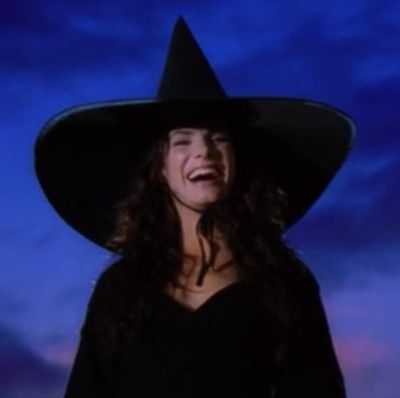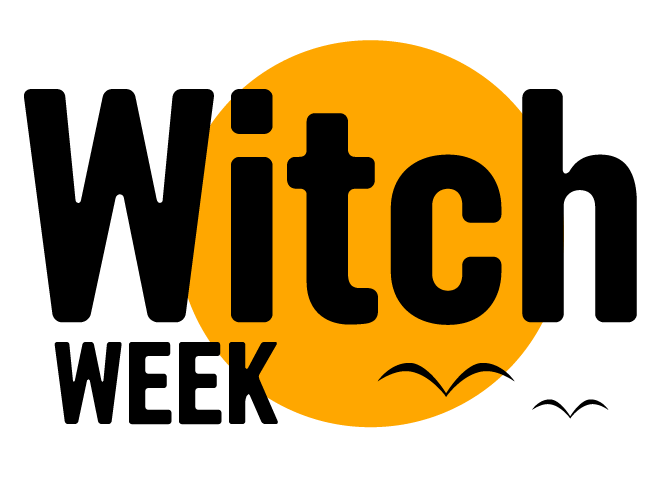
In TV, movies, and real life, women have been at the forefront of the year’s biggest stories — so this Halloween season, we’re looking at pop culture’s most wicked depiction of female power.
The ingredients that turn a flop into a cult classic are difficult to divine. When the witchy rom-com Practical Magic hit theaters in 1998, the critical response was brutal. Entertainment Weekly, to pick one example of many, called the film “so slapdash, plodding, and muddled it seems to have had a hex put on it.” But in recent years, a growing fandom has developed around Practical Magic and its pair of witch sisters, played by Nicole Kidman and Sandra Bullock, who live in a glorious house on an island off the Massachusetts coast, dance to Harry Nilsson records, and drink margaritas at midnight.
It’s a remarkable turn for a movie that was derided by critics and even knocked as anti-feminist because its magic revolves around love spells — and no one is more surprised by this newfound cult status than its director, Griffin Dunne. “It’s an unexpected pleasure,” he tells Vulture. These days, Dunne is better known for his supporting role in Jill Soloway’s adaptation of another feminist classic, I Love Dick. (He’s also been doing press for his documentary, Joan Didion: The Center Will Not Hold.) He says Practical Magic didn’t do much for his career — in fact, he hasn’t worked as a director for a major studio since its release. But he does have a theory about why an actual witch’s curse might be to blame for the movie’s “weird reputation” as a flop.
When Practical Magic first came out, it was panned. How did that feel at the time? And what do you make of the movie’s rise to cult classic?
It was perplexing. There’s something that I’ve never told anyone about before, it’s an interesting story and kind of scary too. I had a witch consultant on the movie. While I was developing it, I was never quite sure I had a real handle on the movie because, quite honestly, witches had no great interest to me. But I loved the book and I liked the setting and when I was working with this witch consultant, it occurred to me that I was making a movie about something I do know a lot about — strong women. I grew up in a house with a strong mother and my grandmother. These were formidable women. And my sister was no slouch. So I had three generations of formidable women and when I got that into my head, I realized it’s not really about spells and spell books and all that — it’s about a legacy being passed from one generation to another. That helped me understand it, and that understanding came out of these conversations I had with this witch consultant. I thought she was a really intelligent person and I invited her to come to Los Angeles to observe the rehearsals with Sandy and Nicole. I had my producer make her a reservation at a nice hotel, and call her, and the witch goes, “You’re not going to buy me off with a hotel room. I want a percentage of the movie. I’m going to have my own Practical Magic cookbook.” She was paid quite well, and she says, “I want an additional $250,000 dollars.” The producer told her that’s just not possible. And she goes crazy and scares the shit out of the producer.
What did she say?
She says, “I’m going to put a curse on you. I’m putting a curse on this movie, and I’m putting a curse on Griffin.” So the producer comes back to my rehearsal, white as a ghost, and she tells me, “That call did not go well. She’s really really angry.” I had no idea quite what happened, so I get back to my office on the Warner Bros. lot and I listen to my voice-mail. [Drops voice to a growl.] “How dare you sic that shrew on me? You think you can buy me off, well let me tell you something? There is a land of curses!” And then she slips into tongues. It was terrifying. I listened to as much as I could and then I hung up. Within minutes, Warner’s been served with papers. She’s suing Warner Bros.
Oh my God.
Yeah. So I give the legal department the tape and they can’t listen to it all the way through, either. They’re so freaked out by it, they just pay the witch off. I don’t know how much, but enough to make her go away. You know, I got a great thing out of this. It inspired one of Aiden [Quinn’s] lines: “Curses only have power when you believe them.” I decided I’m just not going to believe in this. It was creepy. If I’d watched the scene in a horror movie, I would be freaked by it. But this is real life.
Nonetheless, when we’d screen it, people were jumping out of their seats and laughing. Women and girls in particular were all so moved by it, and it did very well at the box office. But despite that, it had a weird reputation for being a failure. So I don’t give the curse any power, but at the same time, I did come to think that somehow a little stink was put on the movie. It took time for that stink to go away.
Where did you find the witch consultant?
From a friend of mine who has never stopped apologizing for putting us in touch. She feels so terrible about it. There was something really creepy and ugly about the whole thing. I do think that there are certain powers that go into wishing ill will. So, just to cover my tracks, I did have a little bit of an exorcism. I hired someone to get that person off my radar.
What was that like?
It was a very simple, New Agey ceremony that was about as silly as the idea that someone would curse you over the phone. It was mostly chants and smoke and shit like that. I just did it to cover my bases.
So even though you didn’t have originally an interest in witchcraft, you felt like you needed an exorcism?
If you’re a person with any kind of spiritual sensibility or if you believe in a kind of higher power, you’re open to beliefs in many things. But with that open-mindedness comes risk. You don’t get to pick and chose. If you open up the door to one thing, it’s hard to deny other things. So while I didn’t give it too much power, I’m open-minded enough to at least spend a hundred bucks on an exorcism. [Laughs.]
How did you develop your vision of magic for the movie? Did this witch consultant influence how you approached the spells?
Yeah, she made me aware of the training, the skill, the artifacts, the literature, and the teachings of this sort of white magic. It’s not so much witches with conical hats and warts on their noses; it’s much more holistic and New Agey. That’s why it was so surprising to have her suddenly go so dark.
How did Practical Magic shape your career as a director?
Not necessarily in a positive way. I’d say every chick flick — for lack of a better word — script came my way. But I really wanted to do something different. I was being offered jobs, just not in the genre that I was interested in staying in. The things that I was developing didn’t get traction and didn’t end up getting made. And I haven’t worked as a director for a major studio since.
When did you notice that movie’s reputation was changing?
When my daughter was in her late teens, I started to notice that her friends loved the movie and quoted the movie and would freak out when they found out that her father directed the movie. I watched it grow and grow and it’s been very touching and unexpected. I’ve gone out with women who have watched this movie every year with their daughters. It’s a lovely kind of surprise.
I was never terribly boastful about it, because as I said, it was perceived as a failure and I’d never had something that was perceived as a failure before. I remember one time, soon after it came out, I was with a woman and we were getting on a plane. While we were looking to find our seats, they announced what the movie was going to be — Practical Magic. I go, “Oh God.” [Sighs theatrically.] But some people on the plane clapped. They were excited. And then they played the preview and the volume was set so high, the people on the plane were screaming, “Turn it down, turn it down!” I’m watching people on an airplane scream at the stewardess to turn the goddamn preview off. I remember the girl I was traveling with said, “I’ve never seen someone so upset that their movie was playing on an airplane.” So, it was a confused time for me. But in the long run, it’s an unexpected pleasure.
Fascinating, powerful women seem to be central to many of the projects you’ve been involved in. Is there a reason for that?
I’m immensely proud of the women in my family. Strong, complicated women, they aren’t characters that are foreign to me.
My friends were surprised when I told them Practical Magic was directed by a man.
I’ll tell you, it wasn’t always easy. It wasn’t like, at the end of the day we’d all order pizza and go to a hotel room and giggle and watch chick flicks all night. The women in the movie became such a strong group that they actually all had their periods at the same time, I remember. During a full moon. And they were joking, “Okay, Griffin, it’s going to be a little rough the next couple of days. This coven might be turning on you.” None of it felt terribly unfamiliar to me.
How did you develop the aesthetic for the film? The atmosphere is incredible.
This was my second picture with Robin Standefer, the production designer, who now designs people’s homes. She had the most extraordinary taste I’ve ever seen. Her designs for that witch house and the spell book and all that, I have them framed in my house. They’re works of art themselves. Just the details that go into it — the widow’s walk, the kitchen. I remember being a little bit threatened by so many people telling me how much they loved the kitchen in the movie.
It is fantastic.
Ben Stiller and his wife were so taken with the design in the movie, they asked if Robin would remodel their home. That’s what she does now — interior designs for homes for a very high-profile clientele. And a lot of it came from that movie.
So why do you feel threatened by compliments about the kitchen?
It would be like if you saw Lawrence of Arabia and then you said to David Lean, “Who is that brown camel in the movie? I love the color of that camel.” But I understood exactly what they meant. The whole look of the film is so luscious.
This interview has been edited and condensed.



